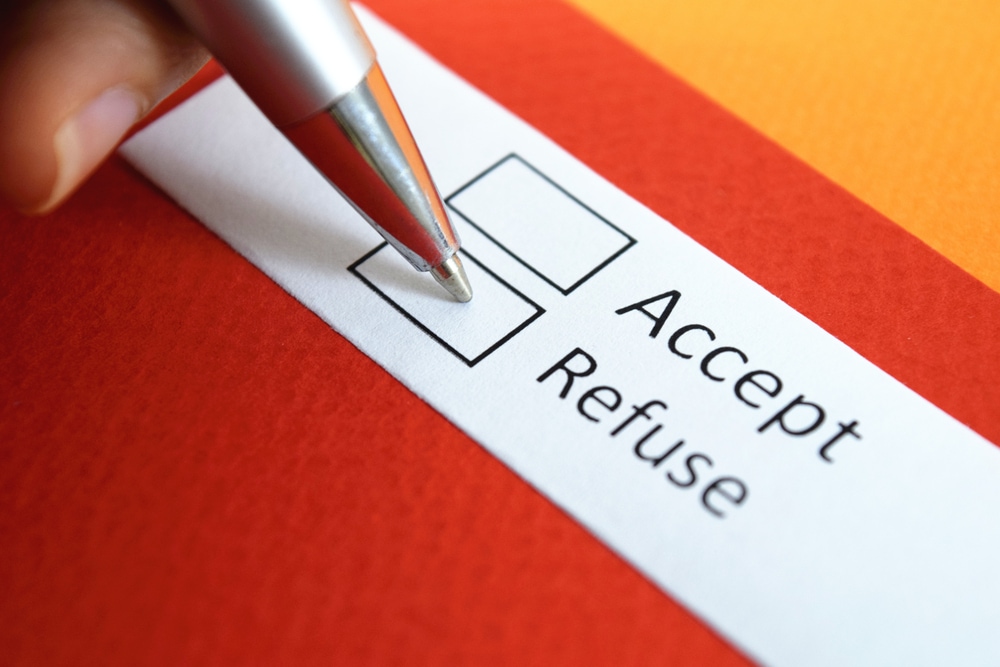If you’ve been in an accident, you’re probably beginning to deal with insurance companies, adjusters, and other details surrounding your personal injury claim. While these dealings should be straightforward, they seldom are. In fact, even an insurance company that has accepted liability may be committed to negotiating and delivering several low settlement offers right off the bat.
As the victim of a car accident, these low settlement offers can be discouraging. After all, you need money to pay your expenses and cover your medical bills. So, what are you supposed to do if the insurance company insists on lowballing you?
In this blog, we’ll discuss the reasons behind low settlement offers, and why they’re the norm from most insurance companies. We’ll also provide a few tips for getting the settlement you deserve.
Let’s dive in.
Understanding the Numbers: Why Did I Receive a Low Settlement Offer?
After a car accident, an insurance company will extend a financial offer in exchange for your commitment to not sue the responsible party. In other words, the settlement insurance companies offer is in exchange for a release of all claims against the negligent party.
If the settlement offer is fair, that may not be a big deal. If the settlement offer is low, though, you may be left wondering why. The answer is simple: even though they’re legally required to pay claims on behalf of their customers, insurance companies are famous for trying to wriggle out of payment. After all, it’s the insurance adjuster’s job to save their company money. They don’t want to pay more than they must, so they’ll issue lowball offers until their feet are held to fire.
Fortunately, you have options regarding low settlement offers. You don’t have to accept the first one that comes across your desk.
How to Respond to a Low Settlement Offer
If you received a low settlement offer from an insurance company, follow these tips:
1. Stay civil
You catch more flies with honey than with vinegar. This is as true for negotiations with insurance companies as it is anywhere else. Remain civil in all your dealings with the insurance company. Remain calm in the face of lowball offers and avoid the temptation to get frustrated. The calmer you can stay now, the smoother this entire process will be.
2. Ask questions
When you receive a lowball offer, we recommend responding with questions. Ask the insurance adjuster how they came to the number they’re offering, and what they’re calculating for things like medical bills, pain and suffering, lost wages, and other damages. If the insurance adjuster seems uncertain, you can expose discrepancies with their numbers or give yourself more leverage for negotiation.
3. Document everything
Make a note of every time you talk to an insurance adjuster, and every communication you have. Keep paper copies of emails and be sure to take detailed notes of every call, including the content of the call and the date. Keep a list of the names of people you’ve spoken to, and any unsuccessful contact attempts you’ve made.
4. Collect your records
Getting the correct settlement relies on always having up-to-date information. Keep an up-to-date documentation of all your damages and injuries, including:
-
Medical records and expenses, with up-to-date medical records and printouts.
-
Photographs of your injuries and the accident, as well as any damages to your personal property.
-
Letters related to lost watches or dismutation.
-
Crash reports, police reports, and other important documentation.
5. Avoid procrastination
There are a few ways procrastination can harm your claim process. Firstly, procrastinating may put you at risk of running into your state’s statute of limitation laws, making it impossible for you to secure a settlement for your injuries. Secondly, procrastinating is generally seen as beneficial to the insurance company. While it can feel overwhelming to confront your claim, doing so in a timely manner is essential to getting the settlement you deserve.
6. Hire an attorney
No matter how diligent you are, you may not be able to negotiate your own claim. As such, it’s important to hire a skilled attorney to protect your interests and intervene on your behalf.
If you’re nervous about hiring an attorney before you receive your settlement, it’s important to know that personal injury attorneys work on a contingency fee basis, so they only are paid when you collect. Here at Ward and Barnes, our team of Pensacola attorneys will work with you to settle your personal injury claim and get you the settlement you deserve after a car accident.
Bonus Point: Have a Number in Mind
Part of responding to a low settlement offer is having a counteroffer in mind. That said, it’s important to know how much you want to receive in a settlement. While it can be tempting to make your initial offer as high as possible, it’s important to take details like your medical bills, your actual and future damages, and any pain and suffering into account.
You may be asked to back up your number with documentation, so it’s important to keep it reasonable and provable. While you deserve to get the settlement you need, you’ll also have to issue a number in good faith. A skilled attorney can help you come up with this ideal settlement number.
Ward and Barnes: Your Trusted Personal Injury Attorneys
If you’ve been involved in a car accident, you deserve a team of attorneys you can trust. Here at Ward and Barnes, our team specializes in responding to low settlement offers, and negotiating on behalf of our clients. Our team of accident attorneys will work with insurance companies and adjusters to get you the settlement you deserve and ensure that every detail of your personal injury claim is handled.
Ready to learn more about our team or services? Contact us today.

